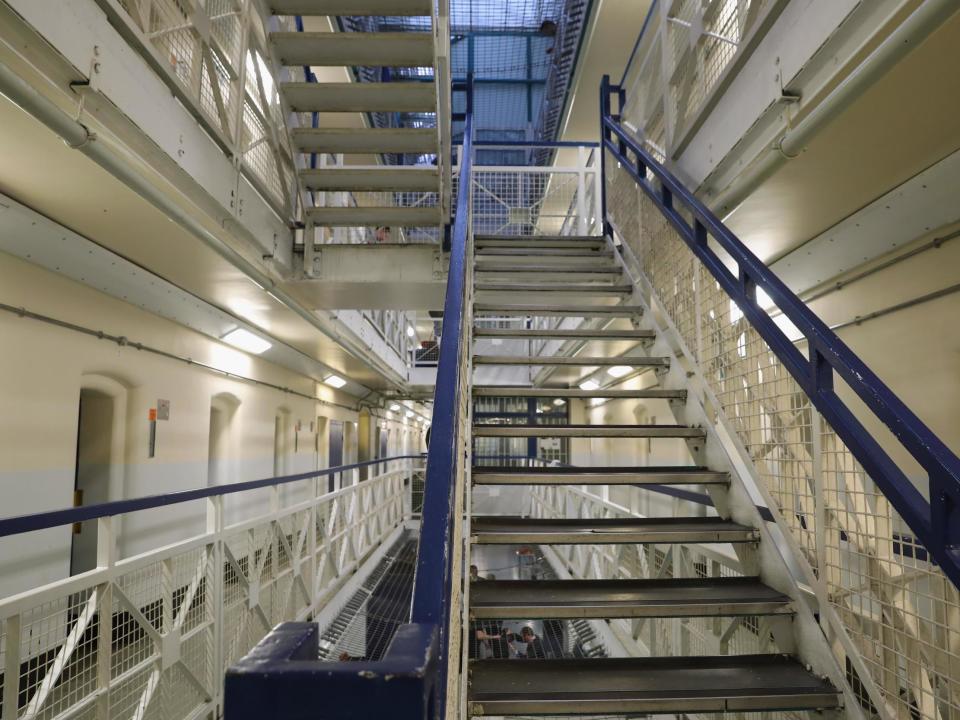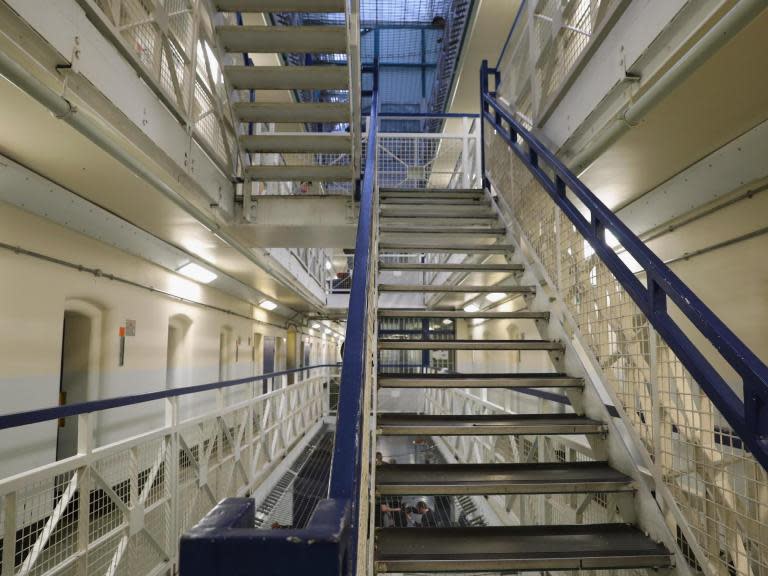Self-harm and violent assaults in prisons hit record high for seventh year in a row
Self-harm and violent assaults in prisons have hit a record high for the seventh year in a row despite an overall drop in inmate numbers, figures show.
There were 55,598 incidents of self-harm in 2018, a 25 per cent surge on 2017, while the number of violent assaults increased by 16 per cent over the same period, according to newly published government data.
This represents a 140 per cent rise in self-harm and a 136 per cent rise in assaults across jails in England and Wales since 2012. The prison population has reduced by 3 per cent over the same period.
The number of deaths in custody has also continued to rise, with 317 recorded in the 12 months to March 2019, up 18 from the previous year. Of these, 87 deaths were self-inflicted, up 14 from the previous year, the data shows.
The figures show a small decrease in both self-harm and assaults over the last quarter of 2018, which the government said showed the “first signs of improvement in reducing violence in our prisons”.
Shadow justice secretary Richard Burgon MP said the new record levels were a “damning indictment of the government’s failure to get a grip of the prisons crisis”.
“You cannot do justice on the cheap and this unprecedented wave of violence is the direct result of the Tories’ reckless decision to axe thousands of prison officers and slash prison budgets,” he added.
“The Tories now need to admit that their austerity policies have unleashed this prisons crisis and put forward an emergency plan with new funds to make our prisons safe and humane for staff and inmates. Without that, violence in our prisons will remain out of control.”
Peter Dawson, director of the Prison Reform Trust, said the numbers showed there was a “very long way to go before our prison system is safe for the people who live and work in it”, noting that the rise in self-inflicted deaths was ”especially concerning”.
He added: “Everyone will hope that the modest improvement in both self-harm and assault figures in the most recent quarter may be the start of a trend, although it is far too early to say.
“But it would be a mistake, when a change may have started to happen, to put that at risk. Rolling out the deployment of Pava spray (an incapacitant spray similar to pepper spray) to all prison officers will undermine the relationships between staff and prisoners on which all aspects of safety ultimately depend.”
It comes after a damning inquiry by the Justice Committee found that the government’s “crisis management” approach to prison funding had been “failing” for half a decade
The MPs said the current approach to prison funding was “inefficient, ineffective and unsustainable” in the medium or long-term.
Prisons minister Rory Stewart said: “Violence and self-harm in prisons remain unacceptably high, but I’m pleased at these early signs that we are making progress. It’s particularly encouraging to see a quarterly drop in violence, the first in two years. Our dedicated prison staff deserve enormous credit and I want to thank them all for their tireless work.
“There is still much to do, however, and no one should underestimate the effort required to return long-term stability to the prison estate. We will continue to prioritise improving safety and security – making conditions safer for prison officers and prisoners, and ultimately protecting the public.”

 Yahoo News
Yahoo News 

